The best books for PhD students can be invaluable companions, navigating the journey is no easy feat, which is why having the right resources can be a game-changer.
These books, along with journal articles, are invaluable across different stages of graduate school.
They address mental health challenges and offer practical advice for both academic and career success.
To support this ambitious academic pursuit, we’ve curated a list of ten essential reads that promise to enlighten, guide, and inspire PhD students. These selections stand out for their timeless relevance and comprehensive insights into the rigors of higher education.
Top 10 Recommended Books for PhD Students
1. How to Write a Lot: A Practical Guide to Productive Academic Writing by Paul J. Silvia
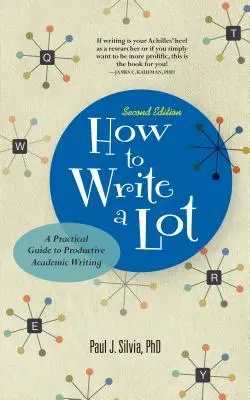
Photo by GoodReads
Book Description:
Silvia dismantles the myths surrounding academic writing and provides practical advice on how to write more and better. A must-read for scholars in any discipline, this book offers concrete tips on finding time to write, setting achievable goals, and productive academic writing.
Why We Recommend this Book:
Silvia’s approachable and actionable advice makes this book an invaluable resource for PhD students looking to refine their academic writing habits and output.
Firstly, Silvia’s book is practical advice for graduate students because it addresses the psychological barriers that prevent many from starting their writing projects. Recognizing and overcoming these hurdles is key to consistent productivity.
Secondly, the book’s focus on developing a sustainable writing routine is invaluable.
By demystifying the writing process, Silvia aids students in integrating writing into their daily lives, ensuring steady progress toward their academic goals.
2. How to Get a PhD: A Handbook for Students and Their Supervisors by Estelle M. Phillips and Derek S. Pugh
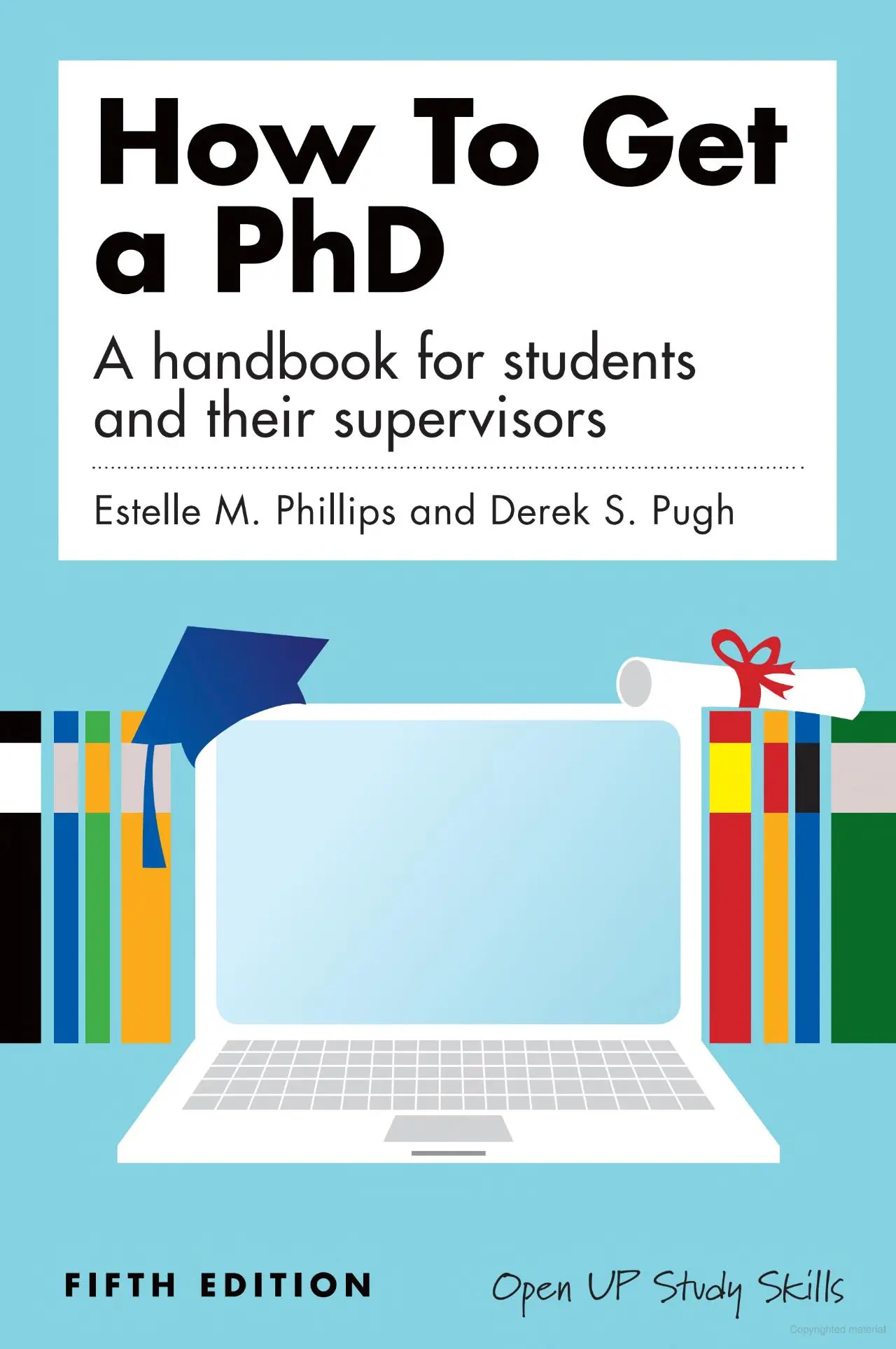
Photo by Google Books
Book Overview:
This comprehensive guide outlines the PhD process from start to finish. From selecting a topic and supervisor to conducting research and writing your thesis, Phillips and Pugh give good advice and provide an indispensable roadmap for aspiring PhD candidates.
Why We Recommend this Book:
With its thorough exploration of the PhD lifecycle, this book is an essential companion for any graduate student seeking clarity and direction on their academic journey.
It specifically addresses the unique challenges and opportunities presented during graduate school, making it a vital resource for navigating the complexities of graduate studies.
Notably, Phillips and Pugh’s handbook stands out as a must-read for PhD students due to its emphasis on the interpersonal aspects of the PhD journey, such as navigating relationships with supervisors and peers.
This focus is crucial because successful collaboration and networking are pivotal for academic and professional growth.
Additionally, the book’s pragmatic advice on handling the emotional challenges of academia equips students with strategies for resilience, making it an invaluable tool for maintaining well-being throughout the demanding process of earning a PhD.
3. The Craft of Research by Wayne C. Booth, Gregory G. Colomb, and Joseph M. Williams
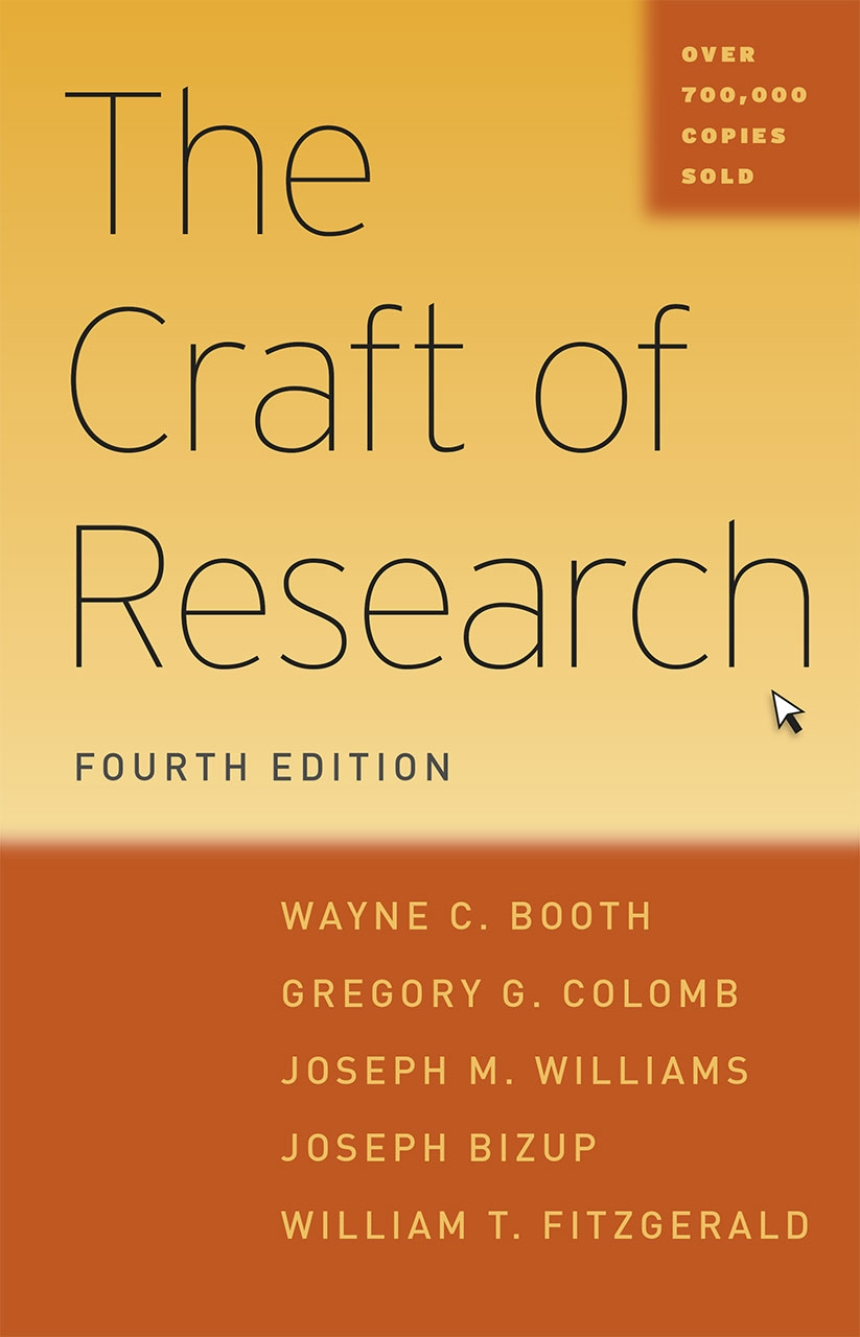
Photo by The University of Chicago Press
Book Overview:
Aimed at researchers at all levels in their research career, this book provides a step-by-step guide to designing and executing a research project and academic writing.
It covers everything from forming a research question to gathering evidence and making a persuasive argument.
Why We Recommend this Book:
The Craft of Research is a fundamental tool for PhD students that offers deep insights into the intricacies of scholarly investigation and narrative crafting.
Ethical research practices are particularly important in fields like computer science, where the latest cutting-edge research prepares students and seasoned researchers for impactful careers.
The Craft of Research is particularly invaluable for PhD students for several reasons. Firstly, it demystifies the research process, breaking down complex concepts into digestible, actionable steps that foster confidence and efficiency in academic inquiry.
This aspect is crucial for students who may be overwhelmed by the scope of their research projects.
Secondly, the emphasis on ethical research practices within the book instills a strong foundation of integrity in students, ensuring that their work not only contributes to their field but also adheres to the highest standards of academic conduct.
These elements make The Craft of Research an indispensable guide for those navigating the challenging waters of doctoral research.
Additionally, the book’s guidance on designing and executing research projects can inspire PhD students to pursue their curiosity-driven scientific research, enhancing their productivity and personal development in their area of expertise.
4. Writing Your Dissertation in Fifteen Minutes a Day by Joan Bolker
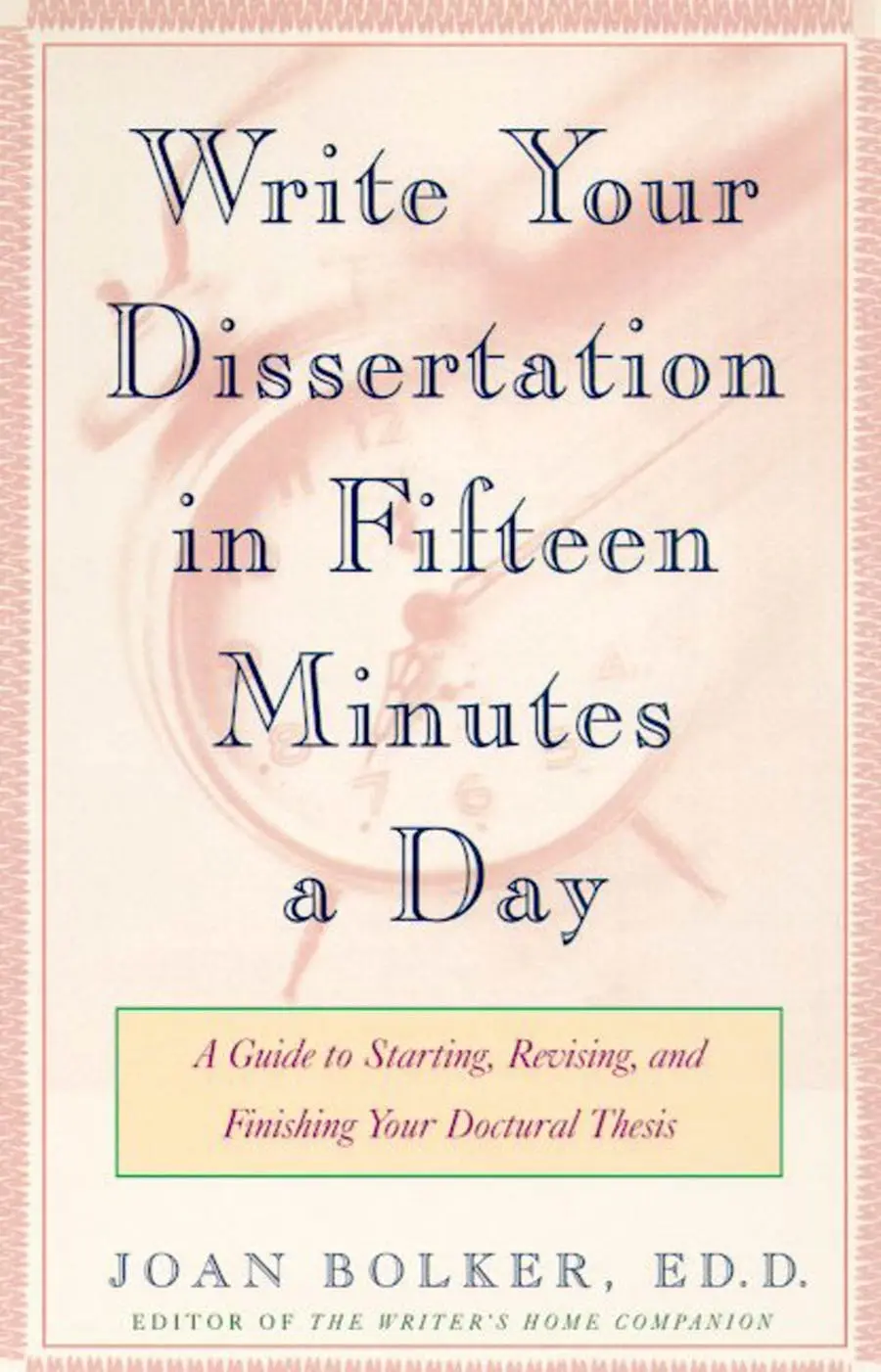
Photo by Macmillan Publishers
Book Overview:
Bolker offers an encouraging guide for making consistent progress on your dissertation.
By breaking down the writing process into manageable chunks, this book promotes a daily habit that can help you overcome procrastination and anxiety and improve your well-being as a grad student.
Why We Recommend this Book:
Bolker’s empathetic and realistic advice is particularly beneficial for PhD students struggling with writer’s block, staying organized or time management issues.
Joan Bolker’s method not only provides a structured framework to approach the monumental task of dissertation writing but also instills a sense of accountability and routine in PhD students.
This approach is pivotal in transforming what can often seem like an insurmountable project into a series of achievable goals, thereby demystifying the process of completing your thesis.
Another critical advantage of this guide is its focus on the psychological aspects of writing and research.
Recognizing and addressing the common emotional hurdles that PhD students face—such as imposter syndrome, isolation, and burnout—Bolker offers strategies to maintain motivation and mental health throughout the demanding course of doctoral studies.
These reasons underscore why “Writing Your Dissertation in Fifteen Minutes a Day” is an essential read for anyone at the beginning or in the throes of their doctoral research journey.
5. The Professor Is In: The Essential Guide to Turning Your Ph.D. Into a Job by Karen Kelsky
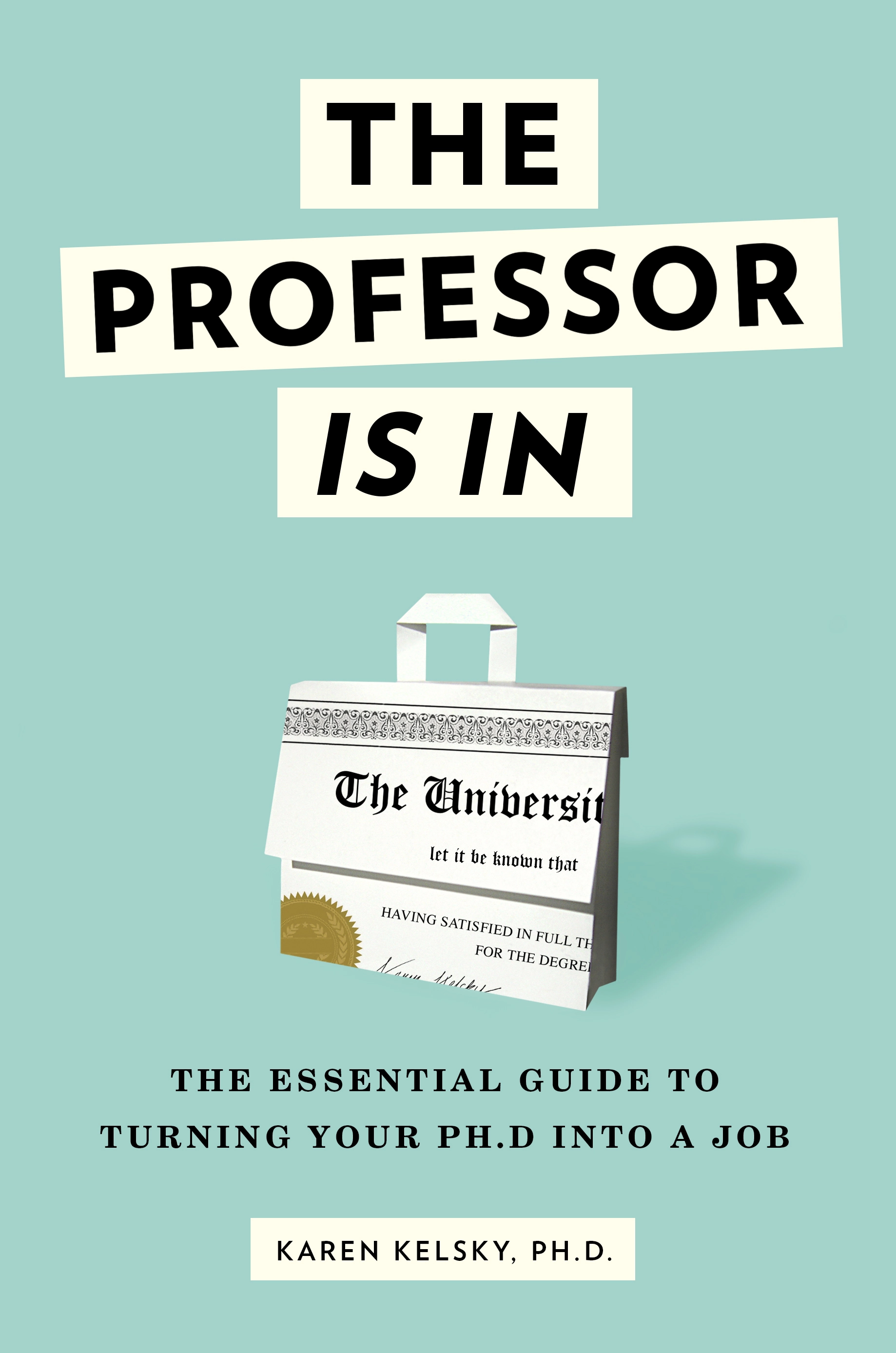
Photo by The Professor Is In
Book Overview:
Kelsky provides a frank and detailed guide to navigating the academic tenure track position.
Covering topics like crafting your CV, acing interviews, and understanding the intricacies of academic employment, this book is crucial for anyone looking to transition from PhD student to employed scholar.
Why We Recommend this Book:
Kelsky’s insights stem from years of experience within academia, allowing her to offer practical advice that is often not covered in traditional academic settings.
She breaks down the complex job market, providing PhD students with actionable steps to stand out in a competitive environment.
Additionally, the book’s emphasis on adapting academic skills for a variety of career paths makes it indispensable for students who are considering both academic and non-academic careers.
Her direct approach encourages students to proactively shape their career trajectory well before graduation, thereby enhancing their employability and ensuring a smoother transition into post-PhD life.
For those aspiring to secure tenure track positions, Kelsky offers guidance that navigates the nuanced path towards achieving such esteemed roles.
Furthermore, Kelsky shares valuable lessons from her experience, equipping PhD students with the knowledge to navigate the academic job market successfully.
6. PhD: An Uncommon Guide to Research, Writing & PhD Life by James Hayton
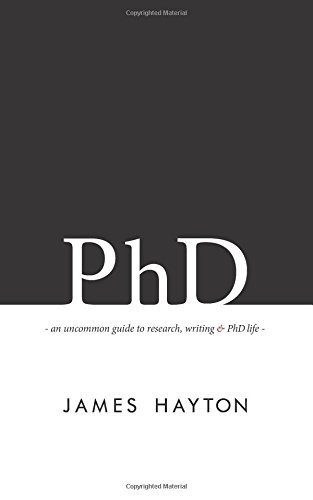
Photo by GoodReads
Book Overview:
James Hayton demystifies the complexities of the PhD process, offering straightforward advice on getting through the challenges of research and writing.
The book also touches on the less-discussed aspects of PhD life, such as coping with stress and uncertainty.
Why We Recommend this Book:
Hayton’s personal anecdotes and pragmatic advice make this guide a comforting companion during the roller-coaster ride of a PhD.
This book is particularly beneficial for PhD students because it goes beyond the academic and technical aspects of the PhD process, addressing the emotional and psychological challenges that are often overlooked.
Hayton’s openness about his own struggles and successes provides readers with a sense of camaraderie, making the PhD journey feel less isolating.
Furthermore, his practical strategies for dealing with common issues like procrastination, writer’s block, and imposter syndrome are invaluable resources that can help students maintain momentum and confidence throughout their studies.
7. A Manual for Writers of Research Papers, Theses, and Dissertations by Kate L. Turabian

Photo by The University of Chicago Press
Description:
Turabian’s manual has been the go-to resource for generations of scholars. This comprehensive guide covers all aspects of the research process, including citation practices, grammar, and style.
Why We Recommend this Book:
A timeless reference that every PhD student should have at their fingertips, especially during the thesis and dissertation phase.
First, Turabian’s manual serves as an essential roadmap for navigating the complexities of research writing, ensuring that students adhere to the highest standards of scholarship.
Its detailed guidelines on citation practices help students avoid the pitfalls of plagiarism, fostering academic integrity.
Second, the manual’s emphasis on clear, concise, and coherent writing is invaluable for scholars aiming to communicate their research findings effectively.
By following Turabian’s principles, students can enhance the clarity and impact of their work, making it more accessible to fellow academics and the broader public.
8. The Elements of Academic Style: Writing for the Humanities by Eric Hayot
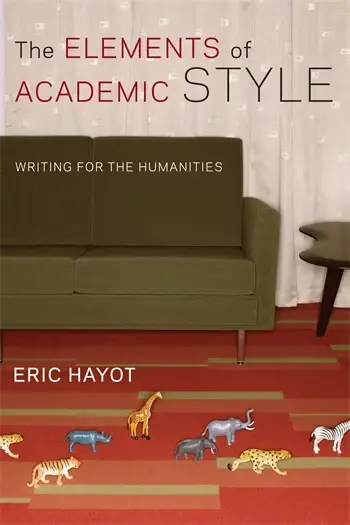
Photo by Columbia University Press
Book Overview:
Hayot offers an insightful guide to writing effectively in the humanities, focusing on the audience, the rhythm of writing, and argumentation.
This book encourages scholars to think about the purpose and impact of their academic writing.
Why We Recommend this Book:
Essential reading for PhD students in the humanities, providing deep reflections on the craft of writing and scholarly communication.
Hayot’s work is indispensable for PhD students for multiple reasons. Firstly, it demystifies the process of crafting a compelling academic argument, which is central to producing impactful research.
Hayot’s emphasis on understanding the audience’s expectations and the rhythm of one’s writing fosters a nuanced approach to scholarship that resonates well beyond the academic sphere.
Secondly, the book encourages scholars to elevate their writing from merely informative to truly engaging, encouraging them to weave complexity and sophistication into their work.
This approach not only bolsters the students’ ability to articulate their ideas but also significantly enhances their contribution to academic discourse.
9. Academic Writing for Graduate Students: Essential Tasks and Skills by John M. Swales and Christine B. Feak
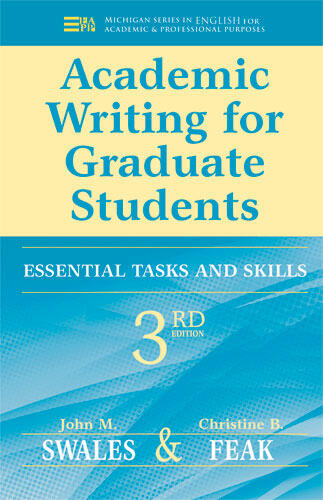
Photo by University of Michigan Press
Book Overview:
This book is a comprehensive guide to the genre of academic writing. It’s specifically designed for non-native English speakers, offering clear instructions on everything from crafting a research paper to participating in academic discussions.
Why We Recommend this Book:
Swales and Feak have created an invaluable resource that addresses the unique challenges faced by international PhD students.
The book’s approach to breaking down the academic writing process into manageable tasks is particularly beneficial for PhD students who may feel overwhelmed by the demands of their research projects.
By providing clear, step-by-step guidance, Swales and Feak empower students to improve their writing skills systematically, enhancing their ability to communicate complex ideas effectively.
Additionally, the focus on the needs of non-native English speakers fills a critical gap in academic writing resources, making it a must-read for international students who are striving to meet and exceed the rigorous standards of academic discourse in English-speaking environments.
10. Publish or Perish: Perceived Benefits versus Unintended Consequences by Imad A. Moosa

Photo by Amazon
Book Overview:
Moosa critically examines the pressure to publish in academia, exploring the impact on academic research’s quality and integrity. This thought-provoking book encourages readers to rethink the publish-or-perish culture.
Why We Recommend this Book:
A compelling read for PhD students and seasoned academics alike, prompting important reflections on the values and practices of modern academic life.
Moosa’s insightful analysis serves as a crucial wake-up call for PhD students, highlighting the potential pitfalls of succumbing to the publish-or-perish mentality that pervades many academic institutions.
This book is particularly valuable for doctoral candidates as it not only illuminates the ways in which this pressure can compromise the quality and integrity of one’s research but also offers practical strategies for navigating academic publishing more ethically and effectively.
By fostering a deeper understanding of the implications of current publishing demands, it equips students with the knowledge to prioritize meaningful research contributions over mere quantity, promoting a healthier, more sustainable approach to academic success.
Expand Your PhD Reading List
Expanding your reading list to include the latest research and developments in your field can be invaluable.
While navigating the vast academic literature can be daunting, the works mentioned above serve as a lighthouse, guiding scholars through the often turbulent waters of doctoral studies.
Beyond these books, it is crucial for students to engage with their research communities, seek mentorship, and participate in academic conferences. These activities not only enrich one’s understanding of their field but also foster invaluable networks that can support career development long after graduation.
Additionally, developing skills in science writing and scientific writing is essential for opening up career opportunities both within and outside academia.





